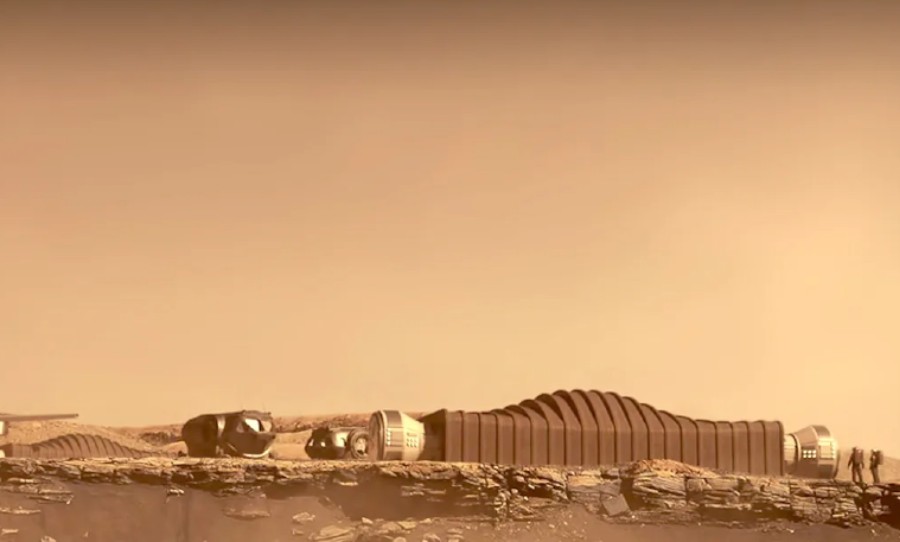NASA is seeking applicants for a year-long analog mission to live in a 1,700 square-foot habitat simulating life on Mars.
Basically, you’d be living with three other people on Earth for one year in a habitat that mimics the conditions on Mars, and you’d get paid.
NASA will recruit four people to live in Mars Dune Alpha, a 1,700 square-foot 3D-printed facility meant to imitate conditions on Mars to help anticipate, solve and prevent potential problems that may come up during a real mission.

Grace Douglas, the lead scientist for NASA’s Advanced Food Technology research effort at NASA’s Johnson Space Center in Houston, says the simulated mission will benefit future missions that actually go to space.
“Simulations on Earth will help us understand and counter the physical and mental challenges astronauts will face before they go,” she said.
The simulation will take place entirely inside NASA’s Johnson Space Center in Houston, Texas.
Houston, we have a simulation.🚀
NASA is now recruiting volunteers who will spend a year pretending to live on Mars. https://t.co/3pjmlu8bXE pic.twitter.com/tBsiXpiuRR
— rachel (@RachelVentresca) August 11, 2021
The analog mission is meant to simulate conditions experienced in space, including physical, emotional and mental effects on the human body.
According to Douglas, analog missions are “critical” if humans plan to live on the Martian surface for any length of time.
Crew tasks may include simulated spacewalks, scientific research, using virtual reality and robotic controls, and exchanging communications.
Let’s also colonize Mars, live on Titan, and control the Sun.
Being able to control the Sun would be the ultimate flex. Let me know when you need help with that! https://t.co/BFvAi7jGr6
— Vib 🐐 (@vbmach) August 10, 2021
You don’t even have to be an astronaut to apply.
The posting calls for healthy and motivated U.S. citizens between the ages of 30 and 55 years old, plus a STEM master’s degree or sufficient experience piloting an aircraft.
NASA warns that the crew will experience simulated problems like those humans might face on Mars, including resource limitations, equipment failure, communication delays and other environmental stressors.
In February, NASA’s Perseverance Mars rover successfully landed on the red planet and is currently inside the Martian Jezero Crater.
The analog mission is set to begin in September 2022, you can apply here.
Some days it feels like I already live on Mars. https://t.co/ukJaUFSxOc
— Sue Ferrara, PhD (@sue_ferrara) August 11, 2021
AND ITS NOT GONNA WORK NOBODY GOING TO LIVE ON MARS WE’RE ALL GONNA DIE AND UR STAYING DOWN HERE WITH US ELON
— cori (@yukikakgae) August 10, 2021



